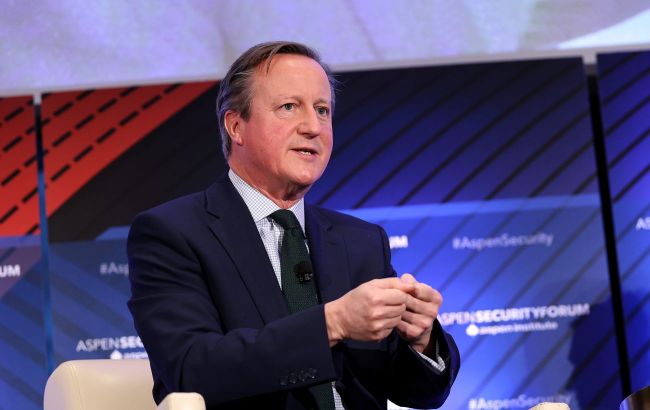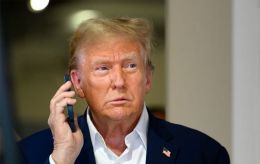UK ready to offer Ukraine loan using frozen Russian assets - Foreign Secretary
 Photo: David Cameron (Getty Images)
Photo: David Cameron (Getty Images)
London is ready to lend Ukraine the amount of the frozen assets of the Russian central bank in the UK because Russia will be forced to pay reparations to Ukraine after the war, according to UK Foreign Secretary David Cameron.
"There is an opportunity to use something like a syndicated loan or a bond that effectively uses the frozen Russian assets as a surety to give that money to the Ukrainians knowing that we will recoup it when reparations are paid by Russia. That may be a better way of doing it," he says.
Cameron notes that London seeks maximum unity in the G7 and with the EU on this issue. "but if we cannot get it I think we will have to move ahead with allies that want to take this action," the Secretary adds.
Cameron says he does not think the bond plan would in any way undermine the reputation of the City of London.
Cameron's plan
According to The Guardian, this is the first time Cameron has spoken in such detail about the proposal, which likely emphasizes the political support the plan has in the US but not in the EU.
This plan is particularly useful for Ukraine if the US Congress continues to block aid to Ukraine, as it would provide Ukraine with a new source of funds to purchase arms and finance its budget deficit.
The G7 has been debating for more than a year whether it is possible to confiscate the assets of the Russian central bank frozen during the Russian invasion of Ukraine without undermining confidence in the international financial system.
According to EU estimates, the assets of the Russian central bank amounting to about €260 billion were placed in the form of securities and funds in the jurisdictions of G7 partners, the EU and Australia, with more than two-thirds of the assets in the EU. It is believed that Belgium controls about 190 billion of assets placed in Euroclear.
The US Treasury, which was initially reluctant to confiscate the assets of the Russian central bank due to the alleged inviolability of sovereign assets, has enthusiastically embraced the idea of bonds. It is estimated that the US has between $40 and $60 billion in Russian assets, and the UK is closer to £25 billion, but the official figure is not disclosed.
The proposal's strength is that the seized assets would be considered returned to Russia after reparations are paid. Its weakness is that it assumes that Ukraine will win a military victory and that the defeated Moscow will be ready to pay reparations for the damage it has caused to Ukraine, which now seems difficult, The Guardian writes.
Use of Russian assets
After the start of Russia's war against Ukraine, Western countries froze Russian assets worth about 280 billion euros.
The lion's share of the assets—essentially securities invested by the Russian central bank—are frozen in the Euroclear depository in Brussels, which has made €3.25 billion in profit from these assets.
The European Commission intends to propose that EU countries use future profits from Russian assets for Ukraine's defense industry.
The World Bank estimates that Ukraine's economic losses from the Russian invasion amount to $499 billion.

